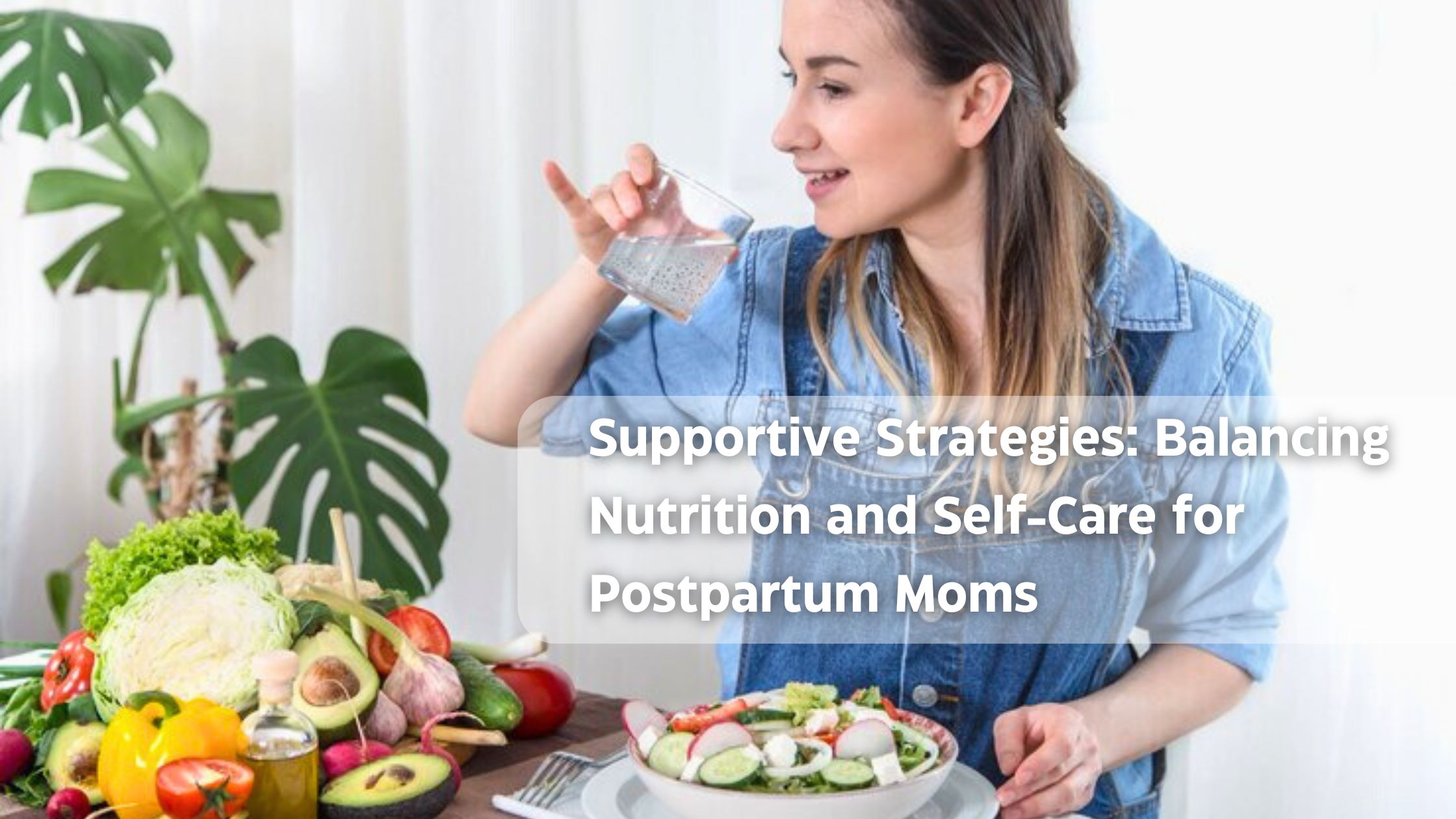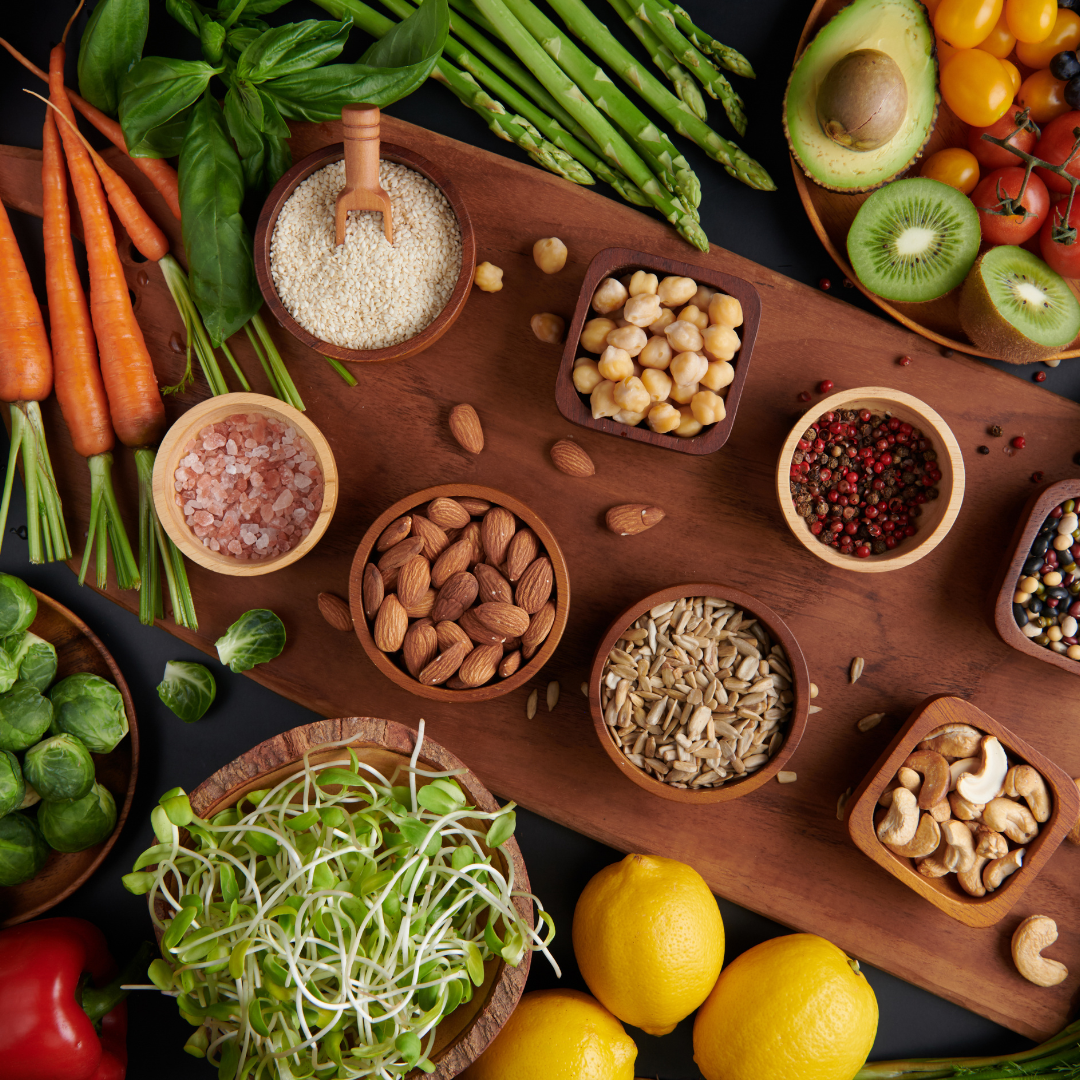Supportive Strategies: Balancing Nutrition and Self-Care for Postpartum Moms
Understanding the Nutritional Needs of a Postpartum Mom

THE IMPORTANCE OF NUTRITION IN POSTPARTUM RECOVERY
Proper nutrition is crucial for a new mom’s recovery after childbirth. It aids in healing, replenishes lost nutrients, and supports overall well-being. For breastfeeding mothers, a balanced diet boosts milk production, ensuring the baby receives necessary nutrients. Nutritious foods also combat postpartum fatigue, providing sustained energy. A diet rich in vitamins and minerals can help stabilize mood and reduce "baby blues." By focusing on healthy eating, new moms can feel stronger, more energized, and better equipped to handle the challenges of motherhood.
KEY NUTRIENTS FOR A HEALTHY POSTPARTUM DIET
Several nutrients are vital for postpartum recovery:
-
Protein: Essential for repairing tissues after childbirth, protein helps rebuild muscles and supports overall recovery. It also plays a key role in milk production, ensuring breastfed babies receive adequate nutrients for growth and development.
-
Iron: Vital for replenishing blood loss during delivery, iron helps prevent postpartum anemia, which can cause fatigue and weakness. Iron-rich foods like lean meats, spinach, and legumes support energy levels and overall health.
-
Calcium: Crucial for maintaining strong bones and teeth, calcium is also necessary for producing breast milk. Since breastfeeding can deplete calcium stores, consuming dairy products, leafy greens, or fortified foods helps protect a mother's bone health.
-
Vitamin C: This powerful antioxidant boosts the immune system, helping new moms fight infections and stay healthy. It also aids in wound healing, whether from a C-section or perineal tears, and enhances iron absorption for better energy levels.

TAILORED NUTRITION TIPS FOR POSTPARTUM MOMS
How to Create a Personalized Meal Plan
Here are some tips for effective meal planning:
-
Prep meals in advance when you have help: Take advantage of any support from family or friends to prepare nutritious meals in batches. This saves time and ensures you have healthy options ready, even on busy days.
-
Include a variety of colorful fruits and vegetables: Brightly colored produce is packed with essential vitamins, minerals, and antioxidants that support recovery, boost immunity, and improve energy levels. Aim for a diverse mix to get a wide range of nutrients.
-
Don't skip meals, even when you're busy: Eating regularly keeps your energy levels stable and supports milk production. Opt for quick, nutrient-dense snacks like yogurt, nuts, or smoothies if you don’t have time for a full meal.
-
Stay hydrated by drinking water throughout the day (image 1): Proper hydration is crucial for postpartum recovery and maintaining milk supply. Keep a water bottle nearby and drink frequently to stay refreshed and energized.

ADJUSTING YOUR DIET FOR BREASTFEEDING
-
Garlic: While garlic can enhance the flavor of breast milk and may even encourage babies to nurse longer, some infants may be sensitive to its strong taste. If your baby seems fussy after feeding, try reducing garlic intake and observe any changes.
-
Spicy Foods: Many babies tolerate spicy foods well, but some may experience digestive discomfort or fussiness. If you notice changes in your baby's behavior after consuming spicy meals, consider moderating your intake.
-
Caffeine: Small amounts of caffeine (from coffee, tea, or chocolate) can pass into breast milk and may affect your baby’s sleep. Limit intake to about 1–2 cups of coffee per day and monitor your baby's reaction.
-
Alcohol: Alcohol can enter breast milk and affect a baby’s development. If you choose to drink, wait at least 2 hours per drink before breastfeeding, or pump and store milk beforehand to ensure safe feeding.
NURTURING YOUR WELLBEING BEYOND NUTRITION
Embracing Self-Care Practices Postpartum
- Get rest when you can, even if it's just short naps (image 1)
- Practice gentle exercises like walking or postpartum yoga
- Take time for relaxation techniques like deep breathing or meditation
- Maintain personal hygiene routines

THE ROLE OF SUPPORT SYSTEMS IN POSTPARTUM CARE
-
Preparing meals or running errands: Having someone handle cooking or errands allows you to focus on recovery and caring for your baby without added stress.
-
Watching the baby so you can rest or shower: Even short breaks can help you recharge, improving both your physical and mental well-being.
-
Listening without judgment when you need to talk: Emotional support is essential for having someone who listens can help ease stress and make you feel understood.
-
Helping you recognize signs of postpartum depression: Loved ones can help identify mood changes, exhaustion, or withdrawal and encourage you to seek support if needed.
CONCLUSION
Proper nutrition is essential for postpartum recovery, helping new moms heal, regain strength, and support their baby’s growth. A balanced diet rich in key nutrients like protein, iron, calcium, and vitamin C can boost energy levels, enhance milk production, and stabilize mood. Meal planning, hydration, and mindful food choices can make healthy eating easier. Beyond nutrition, self-care and a strong support system play a crucial role in postpartum well-being. By prioritizing health and seeking support when needed, new moms can feel stronger, more energized, and better equipped to navigate motherhood.

